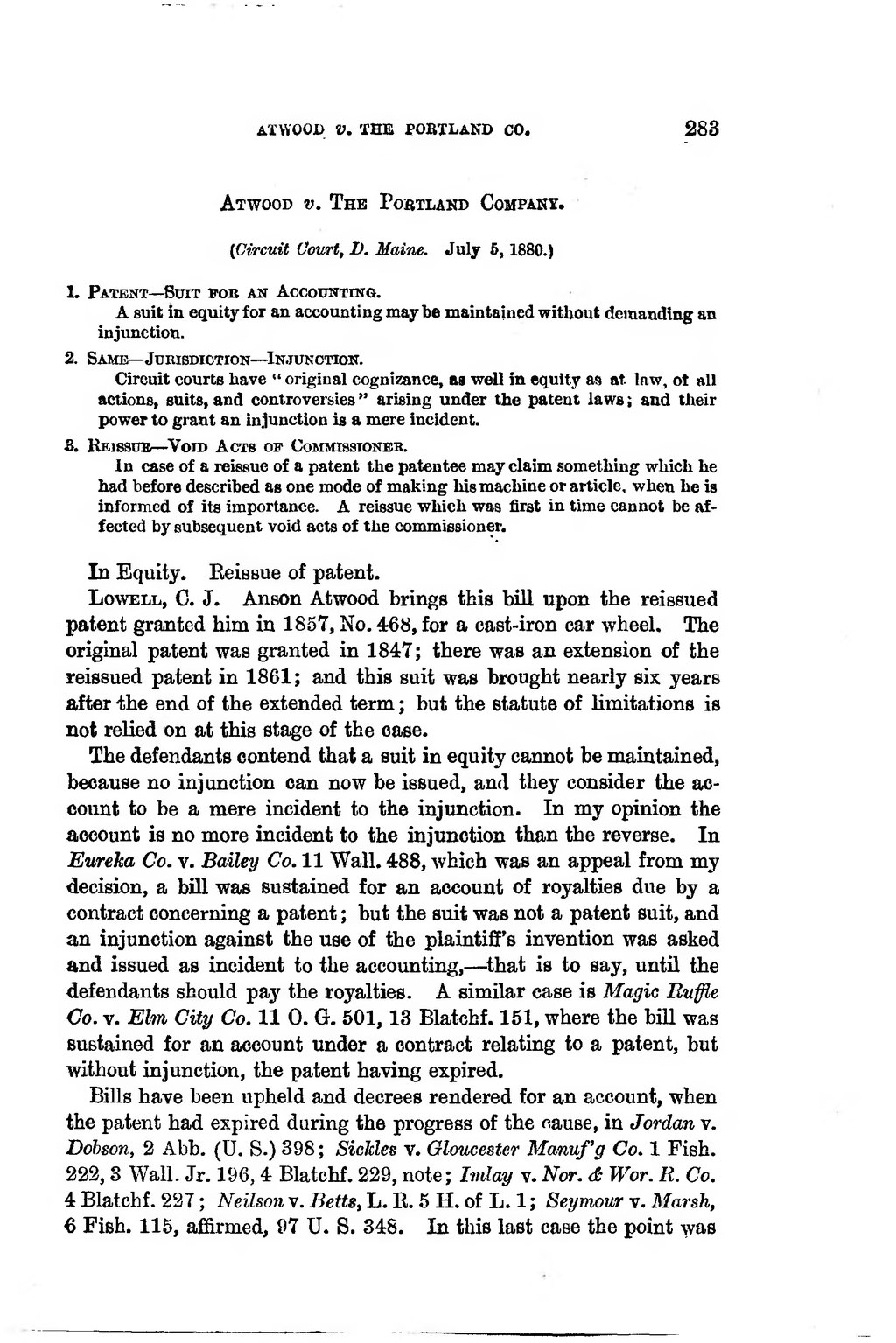a.XVV0OD V. IHE POBTLAND CO. 283 �Atwood V. Thb Pobtland Company. {Circuit Court, D. Maine. July 6, 1880.) �1. Patent— Suit for an Accounting. �A suit in equity for an accounting may be maintained without demanding an injunction. �2. SaME— JURISDICTION — liTJUNCTIOK. �Circuit courts have " original cognizance, ag well in equity as at law, ot all actions, suits, and controversies " arising under the patent laws ; and their power to grant an injunction is a mere incident. �3. ReiSSOB — VOID ACTS OF CoMMISSIONBR. �In case of a reissue of a patent the patentee may claim aomething which he had before described as one mode of mailing his machine or article, when he is informed of its importance. A reissue which was flrst in time cannot be af- fected by subsequent void acts of the commissioner. �In Equity. Eeissue of patent. �LowELL, C. J. Anson Atwood brings this bill upon the reissued patent granted him in 1857, No. 468, for a cast-iron car wheel. The original patent was granted in 1847; there was an extension of the reissued patent in 1861; and this suit was brought nearly six years after -the end of the extended term ; but the statute of limitations is not relied on at this stage of the case. �The defendants contend that a suit in equity cannot be maintained, because no injunction can now be issued, and they consider the ac- count to be a mere incident to the injunction. In my opinion the account is no more incident to the injunction than the reverse. In Eureka Co. v. Bailey Co. 11 Wall. 488, which was an appeal from my decision, a bUl was sustained for an account of royalties due by a coutract concerning a patent ; but the suit was not a patent suit, and an injunction against the use of the plaintiff's invention was asked and issued as incident to the accounting, — that is to say, until the defendants should pay the royalties. A similar case is Magic Buffle Go. V. Elm City Co. 11 0. G. 501, 13 Blatchf. 151, where the bill was sustained for an account under a contract relating to a patent, but without injunction, the patent having expired. �Bills have been upheld and decrees rendered for an account, when the patent had expired during the progress of the cause, in Jordan v. Dobson, 2 Abb. (D. S.) 398; Sicldes v. Gl-oucester Manufg Co. 1 Fish. 222, 3 Wall. Jr. 196, 4 Blatchf. 229, note; Imiay v. Nor. e Wor. R. Co. 4 Blatchf. 227 ; Neilsoyi v. Betts, L. K. 5 H. of L. 1 ; Seyinour v. Marsh, 6 Fish. 115, af&rmed, 97 U. S. 348. In this last case the point was ��� �
